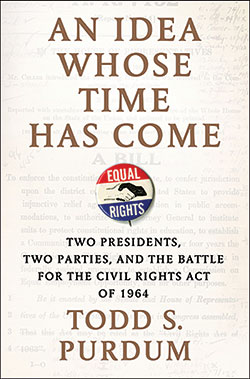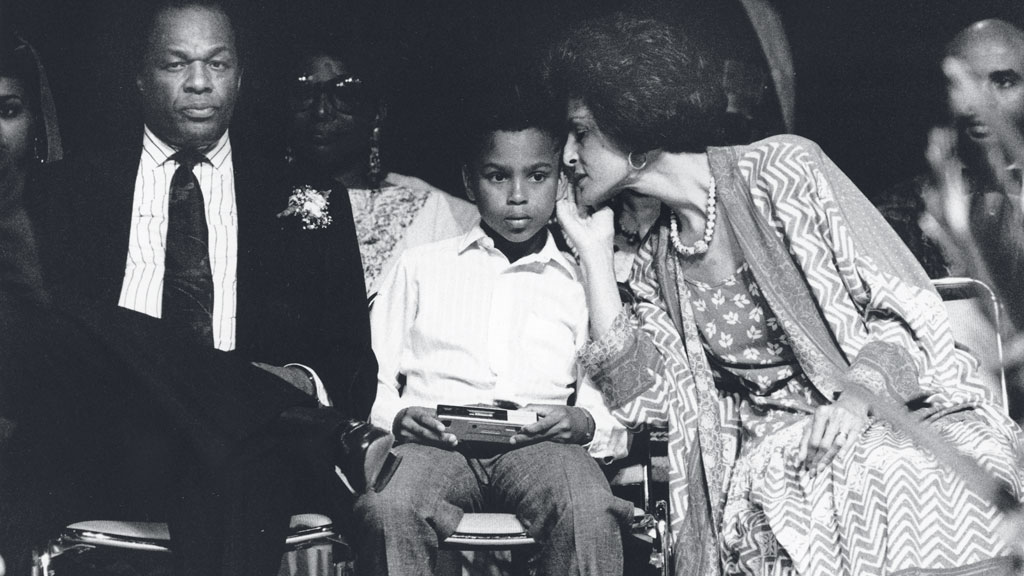The giants of civil rights in America have their shrines: for Martin Luther King Jr., a powerful new memorial on the Mall; Lyndon Johnson has his library in Austin and the 1964 Civil Rights Act. But after reading An Idea Whose Time Has Come: Two Presidents, Two Parties, and the Battle for the Civil Rights Act of 1964, Todd S. Purdum’s new examination of how the act came to be, you may decide that the most venerable remembrance in this town is the Dirksen Senate Office Building.
Everett McKinley Dirksen, Republican senator from Illinois and minority leader for nearly the entire 1960s, was the leader of a pack of Midwestern Republicans who took seriously their heritage as the party born to make African-Americans free. Dirksen’s cloture statement, ending a Southern filibuster on the legislation, is downright Lincolnian: “Victor Hugo wrote in his diary substantially this sentiment, ‘Stronger than all the armies is an idea whose time has come.’ The time has come for equality of opportunity in sharing in government, in education, and in employment. It will not be stayed or denied.”
Purdum, senior writer at Politico and a contributing editor at Vanity Fair, gives equal time to Presidents Kennedy and Johnson, King, and the Freedom Riders. But his own fascination, which readers will benefit from, is the process that made the idea law. “Washington really did work better then,” Purdum says in a phone interview, “partly because the parties had great ideological diversity within their ranks. To get anything done on a question like civil rights, there had to be, and could be, alliances between different factions.”
Purdum’s book is especially good at recounting how the struggle in the streets, as well as events such as the murder of Mississippi activist Medgar Evers for agitating against Jim Crow laws, galvanized politicians to push the bill past its last hurdles. It’s not a legislative procedural, but Purdum’s focus on each hard-won step in Congress keeps the story real and true, making the book an excellent resource on the legislation that, as the author says, “created the modern world.”
The irony, of course, is that the act was the beginning of our current political stasis. “Nineteen sixty-four was the high-water mark of consensus and cooperation in the US Congress,” Purdum tells me. “You can’t really have a triumphalist ending to this story, because after its passage, things began to splinter in Washington.” This realization makes Purdum’s book—and men like Dirksen—more necessary now than ever.
This article appears in the April 2014 issue of Washingtonian.

Author:
Todd S. Purdum
Publisher:
Henry Holt and Co.
Price:
$23.10

















